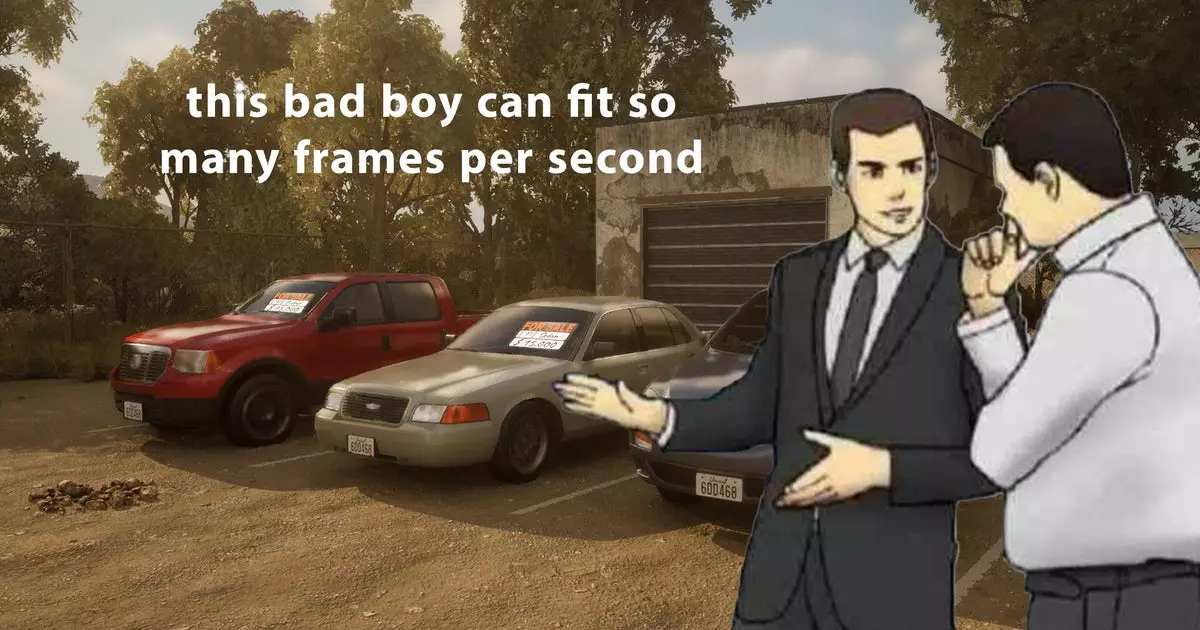The gaming landscape is evolving at a breakneck pace, especially in simulation genres that afford players a glimpse into niche professions. After navigating through a series of high-octane titles like “Monster Hunter Wilds” and “Assassin’s Creed Shadows,” my gaming palette craved something refreshingly different. Enter “Car Dealer Simulator,” a charmingly unique entry that allows players not only to restore battered vehicles but also to dive into the murky waters of automotive sales. Set to launch next month, it brings a layer of intrigue that many might find surprising amidst a year crowded with blockbuster titles.
Gameplay That Reflects Real-World Economics
What excites me about “Car Dealer Simulator” is its unapologetic embrace of real-life trade dilemmas. The mantra “Buy low, fix up, and sell high” resonates well beyond the confines of digital currency. The role of dealing with distressed automobiles stands as a metaphor for broader economic principles: recognizing value where others see irrelevance. This game places you at a dilapidated dealership helmed by a quirky character, aptly named Little Sam. From the outset, the narrative captivates—players are thrust into a world of rust and repairs, needing to carefully navigate the ethics of customer relations while maximizing profit margins.
Even more fascinating is the developers’ nod to the art of deception in sales. You’re not just a savior of forlorn vehicles; you are a salesman who must polish imperfections and present cars in the best light to entice buyers. The notion of strategically glossing over defects to appeal to consumers is as relevant in gaming as in real life. It begs the question: How does one maintain integrity in a world built on perception?
Understanding Through Perspective-Taking
After experiencing the heartbreak of purchasing a faulty used car—one that came with a hidden roster of issues—I’m eager to immerse myself in the shoes of a dealer. This game challenges players to grapple with the dichotomy of helping versus exploiting, forcing a reflection on our trading practices. By “embracing the jerk,” as the original article put it, players receive a compelling lesson in business ethics that extends far beyond the game itself.
My myriad of experiences, from repairing vehicles in “Car Mechanic Simulator 2021” to engaging in underhanded tactics like stripping down customer cars for parts, informs my expectations for the new title. The invitation to see the world through the eyes of a seller is intoxicating, allowing a deeper understanding of the auto sales spectrum—both the noble art of restoration and the morally ambiguous aspects of cashing in on customer ignorance.
The Future of Simulation Gaming
Moreover, this title marks an interesting trajectory in simulation games. Developers Garage Monkeys have already established a niche with “Car Washer Simulator” and “Car Rental Simulator,” but “Car Dealer Simulator” appears to take a daring plunge into more cynical waters. Its ability to fuse reality with entertainment signifies a bold shift in how players engage with simulation games—inviting us to exploit imperfections while simultaneously prompting ethical self-reflection.
Regardless of one’s stance on the retail industry, “Car Dealer Simulator” offers a phenomenal opportunity for personal development through gameplay. While it is easy to dismiss simulators as mere distractions, they often serve as a deft commentary on our experiences. For many gamers seeking depth amidst a fast-paced entertainment landscape, it stands out as a title worthy of attention.
In a world increasingly defined by our relationships with commerce, this simulator holds a mirror up to our own practices, encouraging both self-awareness and exploration in the vibrant universe of automotive sales.

